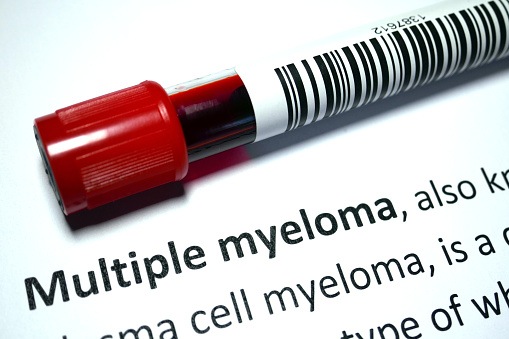
A study published in JAMA Oncology found that the addition of daratumumab to backbone multiple myeloma (MM) regimens improved survival in patients with high-risk MM.
Researchers conducted a systematic review and meta-analysis of Medline, Embase, PubMed, Scopus, Web of Science Core Collection, Cochrane Library, clinical trials registries, and meeting libraries through January 2, 2020. They included randomized, phase III clinical trials that compared backbone MM regimens with the same regimen plus daratumumab in newly diagnosed or relapsed/refractory MM. High-risk MM was defined as the presence of t(4;14), t(14;16), or del(17p).
The final analysis included six clinical trials involving 4,061 patients, 580 of whom had high-risk MM. Three trials included newly diagnosed patients (358 had high-risk MM) from data from the ALCYONE, MAIA, and CASSIOPEIA studies; the other three studies included relapsed/refractory patients (222 with high-risk MM) from data from the CASTOR, POLLUX, and CANDOR trials.
Among patients with newly diagnosed high-risk MM, the addition of daratumumab to backbone regimens was associated with improved progression-free survival (PFS; primary endpoint; pooled hazard ratio [HR], 0.67; 95% confidence interval [CI], 0.47-0.95; P=0.02), with little evidence of heterogeneity (P=0.77). Similar improvements in PFS were observed in patients with relapsed/refractory high-risk MM (pooled HR, 0.45; 95% CI, 0.30-0.67; P<0.001), also with little evidence of heterogeneity (P=0.63).
“The present analysis provided evidence that, when combined with backbone proteasome inhibitor and immunomodulatory agent-based regimens, daratumumab was associated with improved PFS among patients with high-risk MM and standard-risk MM in the context of newly diagnosed and relapsed/refractory disease,” the researchers concluded.







 © 2025 Mashup Media, LLC, a Formedics Property. All Rights Reserved.
© 2025 Mashup Media, LLC, a Formedics Property. All Rights Reserved.